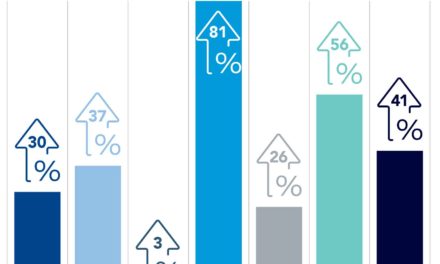Better Business Podcast EPISODE 7
The Leadership Trajectory of Women:
How COVID, Roe v. Wade, and Other Obstacles Have Brought New Challenges to a Longstanding Struggle
Guest: Aparna Joshi, professor of management and the Arnold Family Professor of Management
For years, fewer women have ascended to leadership positions because of the so-called broken rung at the first step of management. In the last few years, new challenges have been added to the longstanding struggle. The COVID-19 pandemic forced many women out of the workforce — more than men — and the overturning of Roe v. Wade means more women are at risk of not advancing in the workforce.
Aparna Joshi, the Arnold Family Professor of Management at Penn State Smeal, started in academia some 20 years ago. She remembers none of her colleagues looking like her. That impression, she says, “has definitely informed my journey in my research” on gender diversity and inclusion-related topics as they pertain to leadership.
“And I think it gives me a certain unique perspective,” Joshi adds. “I often found myself questioning whether I’d ‘make it’. But looking back now, what I tell the younger female scholars and academics coming up is those things that I felt would be an obstacle to my making it were actually those that also gave me the resilience to make it.”
In many ways, however, Joshi remains unique.
“[I] started noticing that in our classrooms there were almost as many, or more, women than men. And they did very well. They did even better than their male counterparts. And that’s not just my anecdotal experience,” she says. “We know that from the data from not just business schools, broadly, but also law schools and even in many engineering disciplines, which we think of as fairly male-dominated.
“But then, when you look at corporate law firms and the people who make it to partner, or the upper echelons of tech firms, well, there are very few women there,” Joshi continues. “Less than 20 percent, for example, of corporate law firms have female partners. And the story is the same in academia. In our Ph.D. and in all our graduate programs, women are well represented. But then if you look at the number of women who make tenure and who become full professors at many business schools, it’s not that many.”
For women who enter what Joshi describes as careers with “long pipelines,” which can include tenured professorships and attorneys aspiring to be partner, the obstacles can be many. But she’s pinpointed a few that consistently alter these career trajectories: Critical periods at work coincide with the ages when women, on average, start a family; performance review is often discretionary and diffuse; and the “institutional gatekeepers,” as she calls them, are generally men.
“We have often asked: How do we (women) navigate this double bind between being not too forceful and just assertive enough?” Joshi says. “That burden has been placed too heavily on women and other underrepresented groups. I think, really, the only way to bring about real change is to change the way dominant groups, such as men, think about these issues.”
While she admits that this is easier said than done, she also believes the pandemic has helped many organizational leaders gain a better appreciation for the challenges associated with maintaining and navigating a work-life balance. And this could become the catalyst that finally sets that process in motion.
“[I] think when you convey a culture of work-life balance that is inclusive for men and women,” Joshi says, “you give men permission to step back and take on caring roles [at home], and you also enable women.”
– Scott Edwards

Aparna Joshi, the Arnold Family Professor of Management, discusses the challenges faced by women in leadership positions in Episode 7 of the Better Business Podcast.




